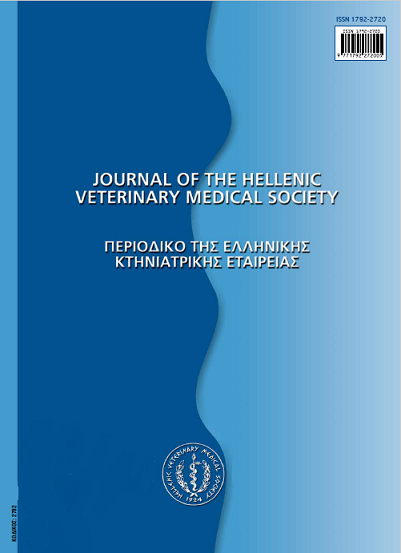Cultural and social aspects of animal domestication in Greek traditional society

Abstract
The study of the ways, perceptions and practices by means of which a traditional society domesticates animals constitutes an important chapter in the understanding and interpretation of the making of its civilization, as the presence of animals can be found in all its facets and expressions. In the present paper which, in its initial form, was delivered as a lecture to the Hellenic Veterinary Medical Society, reference was made to the ways the Greek traditional society uses to integrate animals in its cultural system. This reference, however, was a brief and indicative one, as these ways have not been sufficiently studied from a folkanthropological point of view in Greece. This integration happened in many different ways, through the production and reproduction of the animals in their quality as financial asset, the consumption of their meat during week days and celebrations, their naming, the care to prevent and to cure illnesses affecting them, their participation in the worship rituals of saints as sacrificial offers, both real and symbolic, their position in the symbolic and the imaginary as it is depicted in oral narrative (legends, fairy tales, traditions, proverbs). Special mention is made to the saint patrons (St. Modestos, St. Mamas, St. Minas) of the animals in orthodox Christian religion and in Greek popular beliefs and practices.
Article Details
- How to Cite
-
ECONOMOU (Α. ΟΙΚΟΝΟΜΟΥ) A. (2017). Cultural and social aspects of animal domestication in Greek traditional society. Journal of the Hellenic Veterinary Medical Society, 62(2), 172–178. https://doi.org/10.12681/jhvms.14848
- Issue
- Vol. 62 No. 2 (2011)
- Section
- Special Article
Authors who publish with this journal agree to the following terms:
· Authors retain copyright and grant the journal right of first publication with the work simultaneously licensed under a Creative Commons Attribution Non-Commercial License that allows others to share the work with an acknowledgement of the work's authorship and initial publication in this journal.
· Authors are able to enter into separate, additional contractual arrangements for the non-exclusive distribution of the journal's published version of the work (e.g. post it to an institutional repository or publish it in a book), with an acknowledgement of its initial publication in this journal.
· Authors are permitted and encouraged to post their work online (preferably in institutional repositories or on their website) prior to and during the submission process, as it can lead to productive exchanges, as well as earlier and greater citation of published work.


